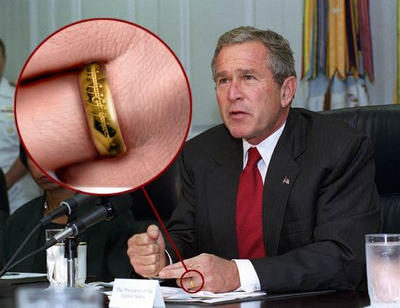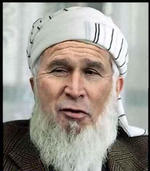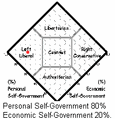|
|
26 Feb 2003 @ 20:45, by gaiatech. Politics
There is a system of voting where X marks the choice and it is used in Britain, Canada and the USA. It is statistically very boring.
You are not going to find out too much about a voter from seeing an X opposite a politicians name, are you? You might find that her or she is a Conservative or left wing a Green,.
But what type of conservative? Did they vote conservative for economic reasons, or for stronger laws or for something else?
You cannot even guess.
There is another system of voting where you vote 1,2,3,4,5,6,7, etc in order of your choice.
It is a statisticians dream!
You can look through the second 3rd and 4th choices to find out much more clearly what the person is voting for. Not only that, but in this voting system, 3,4 or 5 candidates get elected from one area so you get to choose WHICH conservative is preferred! The choice might be between the economically conservative conservative who is socially liberal (and with wife no 4 ) and his opposite. Economically liberal but socially conservative. With this system, you get to see much more clearly what the people want and why they made their choices. And isnt that what politics should be about? Knowing what the people want and why they want it?
This system is actually remarkably stable! It seems to produce 3 to 4 largish partys and the ocasional split off party. New ones do start from time to time but their thunder is usually taken rather quickly by a large party shifting their position a little. (Again, this is not bad). The partys are changing to reflect the views of the voters and that is what is supposed to happen! I see major problems with bipolar politics. Mushroom parties. Here in BC canada the previous government has 2 elected representives in a parliament of over 70 this time! The government party have the rest!
Over 90% of the voters voted for them? NO!
It was a little over 50%. I WAS SHOCKED!
In another situation, a 3 way division on racial or religious lines could lead to a government with an absolute majority in parliament and just over 30% of the vote. That is really scary!
So, what do you think?
Brian White
|
|
|
|
 19 Feb 2003 @ 13:30, by jewel. Politics 19 Feb 2003 @ 13:30, by jewel. Politics
According to the crazy right-wing AM radio stations and commentators I listen to as I descend from the Morongo Basin to the Choachella Valley every day, in a recent statement Senator McCain tells Clinton and Carter to 'shut up'. (Not, though I can't find this transcript yet in any news searchs!) ....
For example, far right commentator Glen Beck thinks that it's the Clinton's desire to rule the world by 2008. Which won't be too bad in my view. I see Clinton a lot like JFK. Obviously both men sold their souls to the devil to get into office. Clinton I am sure was some instrument with the Iran-Contra funds when he was governor of Arkansas; and it is well documented about JFK's daddy's mob and Hoffa buddies buying votes (see 'Double Cross' by the Gioccana bros). But there is an energy for lack of a better word that both men took on and almost embodied. They 'rose to the occasion' in a symbolic and thus important sense. I was lucky to experience the European view of Clinton in his last year in office whilst I was in the UK. An incredible statesman. Could talk beyond rhetoric without notes for an hour at a time. Yes, I know my conspiracy and liberal friends would say he was just as bad in policy as present King George---and, yes, just like Blair, both men represent a 'labour' and 'democratic' platform that is far more to the right and sold out to corrupt corporate interests. No longer seeming to care about the eroding working/ middle class common folks.... and, I agree.
Yet, there is something inherently cool and smartly hip about Clinton... some Light with a capital L--that one can almost sense or detect in his very presence and in the invisible forces behind what he symbolizes whenever he takes the podium or has a lucid moment captured on camera... That's where I draw my analogy with Kennedy. Also the very atmosphere of business and the culture in the country. Where the money was hot. The idea that information, knowledge and virtual realities possessed an inherent value beyond what the current profit margin was. Of course the dot com bubble needed to burst to some extent. But the money although still corporate and thus still corrupt---was a step in the right direction, not the same power as the old money of tobacco and oil that seems to be behind the Bush camp.
So, Beck says that Clinton is jockeying for UN Secretary-General. Here's a few negative ideas on the matter; ... Sure he is still looking out for his own grandeur and political career. But no matter, I feel he could be well 'used' in these situations. And here Laura Ingraham warns: "As conservatives long suspected, Bill Clinton's loyalty, as evidenced in this speech, is not primarily to this country. His loyalty is to the liberal European elites who adore both him and the prospect of the world where America is no longer the world's sole super power. (Clinton also warned against US efforts to "dominate and run the world.")
For Clinton, a new UN resolution on Iraq is merely a means to a larger goal-"the chance to integrate the world, to make the United Nations a more meaningful, more powerful, more effective institution." The crowd went nuts.
Bill Clinton is still the biggest figure on the Democratic stage. He still raises the most money. He still exerts influence through Hillary and pal DNC Chairman Terry McAuliffe. He is still beloved by Hollywood. Republicans should call upon all Democrats to either embrace or distance themselves from this World According to Clinton. Do they agree with Clinton that the US shouldn't try to be a dominant world force? Do they agree that our main goal should be an "integrated world." Do they agree that we're ripping off the UN by not sending more money Kofi's way?
Meanwhile, if Bill Clinton wants, sometime in the future, to be named Secretary General of a super-sized UN, he already has the campaign theme down pat: America Last." Similarly, Beck 'warns', what if in 2008 the then UN Secretary-General Clinton is hosting a party for his wife the eve of the election---who will run the world then?
None of these 'warnings' frighten me. Rather a deliver a strange surreal hope and even a promise amist all the current mayhem... if we could make it to 2008.
Maybe the fall of Rome won't hurt so bad if a former Casesar--having been matured, humbled and even more enlightened--is involved with it's empiricism's punishment and potential reform on the global stage... and if Hillary keeps her spine up! More >
|
|
|
|
 13 Feb 2003 @ 23:59, by ming. Politics 13 Feb 2003 @ 23:59, by ming. Politics
It is a widely held value that people can hold different opinions, and it is sort of good to agree to disagree. Particularly if it is political opinions. It is considered noble to respect people one disagrees with.
But there are some qualities of opinions that most people don't notice. It is sometimes like comparing apples and oranges. Two opinions might be of a totally different order from each other, even though they are compared equally.
Let's take a politically and religiously very controversial issue like abortion. The typical way of presenting it is that there are two sides. For or against, basically. The people who think abortion should be legal and those who think it should be illegal. Those are not at the same logical level at all. Comparable choices would be to force all pregnant women to have abortions versus to allow no pregnant women to have abortions. Yes, that is ridiculous, but those would be logical opposites on the same playing field.
Or let's take opinions about whether it should be legal to smoke in public places or not. One side says that one should never be allowed to do so, or one would be fined or arrested. The opposite of that would be that one HAS to smoke in public places, or one would be fined or arrested. Ridiculous? Yes, indeed.
The point is that the choice of forcing everybody to always do something, or to never do something, that's a huge responsibility, and not just a matter of making a good point. You have to be responsible for it always, always, forever being the right choice. That's a real big thing. And it is fairly impossible, because you don't really know if it is always the right thing, because you probably can't imagine all the people and all the situations it applies it. So you probably just make the choice based on your own personal inclination right now, or your religious beliefs, or your idealistic political views, and you might vote for having that choice imposed on everybody all the time. And you sort of ignore the details, hoping that as a member of a government, you probably never have to be faced with those circumstances where that choice wouldn't be the right one.
So, in summary, the option that people are free to make their own reasonable choices based on the situations they find themselves in, that is not on equal footing with the option that they always have to do things the same one way, or that they never can do it a certain way.
People who believe in abortion rights do not necessarily plan on getting pregnant and getting an abortion. People who think there should be somewhere they can smoke, do not necessarily plan on smoking in all the very places that would be the most bothersome for non-smokers. They would maybe just like to be free to make some reasonable choices about it, based on the actual circumstances.
So, they're not equal opinions to have. If your option involves that I will be forbidden by force from exercising my option, but my option only is my personal choice, then our options are certainly not equal. Your option is clearly hostile to mine, but the reverse probably isn't true, even if you have trained yourself to think about it as if it is.
Most politicians don't realize the enormity of a decision to force something to be a certain way for everybody, particularly when we're talking about some sort of personal behavior or lifestyle choice.
To go to war and or not to go to war aren't equal either. They aren't just different opinions, different choices based on personal preferences. One will involve taking away the right to choose from hundreds of thousands or millions of people, because they will probably be killed. Sometimes that might make sense, if even bigger killing is avoided, but it is a very, vary hard decision, based on careful analysis of the facts. It isn't just some opinion to have.
Certain global choices don't really take anything away from anybody. Forcing all of us to drive in the right or the left side of the street, or to use 110V or 220V electricity, that is a matter of organization, and doesn't make any of us lose anything.
But a choice is a choice. Something an individual makes, or something that the people involved make in concert.
True bottom-up grassroots democracy consists of people making choices, and being quite likely to get what they're choosing. Many people will choose different things, and they will get different things. Enforcing the same choices on everybody should be avoided unless absolutely necessary. More >
|
|
|
|

10 Feb 2003 @ 23:34, by ming. Politics
Long list of some of the best signs from the peace march in Washington D.C. on January 18th:- Drunken frat boy drives country into ditch.
- Bush/Cheney: Malice in Blunderland
- Who would Jesus bomb?
- War begins with 'Dubya'.
- Bush is proof that empty warheads can be dangerous.
- Let's bomb Texas, they have oil too.
- How did our oil get under their sand?
- Daddy, can I start the war now?
- 1000 points of light and one dim bulb.
- Sacrifice our SUV's, not our children.
- Preemptive impeachment.
- Frodo has failed, Bush has the ring.
- Look, I'll pay more for gas!
More >
|
|
|
|
20 Jan 2003 @ 22:51, by craiglang. Politics
One fascinating thing that I note in many of the discussions on the upcoming war is the degree of polarity involved. There is a deep (and very legitimate) anger over the behavior of the world's (materially) wealthiest nation.
Most interesting is the philosophy behind opposition to the war. This is the idea that we can achieve peace by opposing war. In the causal, objective world this makes sense - there is a pressing need to prevent this awful thing looming ahead of us, so political action is vital. Yet when I see this I am reminded of the Law of Polarity which is core to so many spiritual traditions: "That which we oppose, we bring power to...".
While I feel complete revulsion at the coming US "adventures" in Iraq, I wonder if by intensely opposing war we are actually energizing the very conflict we oppose. In being "ANTI"-war, could we simply be creating another conflict - this one about conflict itself?
So, how can we work for peace besides being "anti"-war? I wonder if the true pacificst is actually the peacemaker - the healer, rather than the divider. While activisim is important, perhaps it is at least as important at this time to be sure to observe one's spiritual tradition. Now more than ever, praying for peace, meditating on peace, and above all - practicing peace in daily life, seems to be truly important.
As within, so without. In many ways, peace begins at home. Some food for thought on a cold January night. More >
|
|
|
|
 29 Dec 2002 @ 18:12, by ming. Politics 29 Dec 2002 @ 18:12, by ming. Politics
I was watching a documentary on Jimmy Carter's presidency the other day. It is striking how he is such an intelligent and hardworking person, who's always trying to do what his heart tells him is the right thing to do, so he can act with integrity. And he accomplished some remarkable things both while he was president and after, in terms of brokering peace internationally. But at the same time he was one of the most unpopular and unsuccessful U.S. presidents ever, according to popularity polls during his presidency, lower than any previous president in history. Which points us to something very important which he didn't do. He didn't manage the public perception of him or the country or the world. He speaks in a boring monotone and doesn't pay much attention to public relations. So things go badly in the economy and in polls, because people don't have confidence that things are good. Whereas an actor like Ronald Reagan gave great speeches, and seemed confident and inspiring, so people responded accordingly. He mushroomed taxes and national debt more than any U.S. president every had, effectively nationalizing several trillion dollars worth of private property, while pretending that the government was being trimmed down. What mattered the most was the perception, not what actually happened. And fast forward to George W. Bush, and it is now ALL about perception. He's half illiterate, knew nothing about history or foreign policy, is a recovering alcoholic and cocaine addict, and has many other problems that other candidates would have been nailed for. Now it is no longer necessary to get all the details right, and in most situations it doesn't really matter much if the facts are all wrong. As long as the president is looking good, looking confident while he says the right things, and as long as there are a bunch of people supporting him who do likewise, it doesn't really matter if the only reason for bombing Iraq is to get at its oil business. Doesn't really matter if nothing much came out of the investigation of 9/11. Doesn't really matter if Bin Laden gets to go free for no good reason. Doesn't really matter that the U.S. is now more in debt than ever before, and that military expenditures are skyrocketing. All that matters is managing the confidence in the system as it is.
My point here is not the politics. Rather, the world seems to have gradually changed so it is more and more about the perception of what is going on, rather than what really is going on. It is a virtual reality. That is both good and bad. The bad part is that slick political and corporate rulers can use the mass media to create the picture of reality that they would like to create. The good part is that it is public opinion that really rules the world. It is what you and I think, and what you and I see, that makes a difference, if there are enough of us. Which means, you don't necessarily have to figure out how to be president, or how to run a billion dollar company, or how to own an army. You just need to figure out how to influence public opinion in a more useful direction. It is not controlled, only influenced or inspired. If most people in the world stopped voting for people who mislead them, while pursuing special interests; if most people in the world stop buying products from companies who don't have their best interest in mind - the power structures would change very quickly. And how it all looks is now more important than who owns what. If public opinion changes its mind, and starts believing in totally different structures, and SEEING different structures - that would be the new world order. More >
|
|
|
|
 26 Dec 2002 @ 12:45, by cho. Politics 26 Dec 2002 @ 12:45, by cho. Politics
deleted More >
|
|
|
|
12 Nov 2002 @ 15:30, by sharie. Politics
Now that we've discovered the software programs which count the votes at the ballot box were created by companies owned by Senators and Campaign Managers ad nauseum, I suspect the results were determined prior to the elections.
See [link]
I think of all the hatred focused on the U.S. now...
and all of our sports teams proudly wearing the American flag on their uniforms, representing our *country* which is controlled by a criminal dictator...
and I think of our public funds being siphoned off into private bank accounts while the 2004 Presidential election results are being programmed into the computer software...
I'm thinking our residents might wanna come up with a whole new identity, a new flag, a new symbol, a new constitution... to set us apart from the dictator, so the world knows how we feel about what's going on in our lives.
The whole Iraq thing, for example, is so bizarre.
Back in July, Cheney was being investigated for price-fixing when he was the Energy Commissioner.
Suddenly we have the war against Iraq getting front page coverage.
Do I think the need to attack Iraq is fabricated by the *administration* who will benefit from it?
Yes.
Based on Bush-Cheney investments in weapons companies, how much do they stand to profit from weapons sales to the U.S. Government [contracts they will issue, paid for courtesy of the American people]?
(This is disgusting.)
How many babies and children and men and women will be slaughtered for this *necessary* war?
The bizarre thing is that fuel cell cars are coming off the assembly lines at Ford, Honda, etc., etc., which will begin a reduction in the demands for gas and oil, so I don't see how the Iraq war is about war... (or about biological weapons)... it's more about the Bush-Cheney faction wanting to control the world, to control the U.N.
But why?
Are they religious fanatics?
Control freaks?
Money grubbers to the nth degree?
It reminds me of the chemtrails, and the one airline mechanic and one employee who came online to tell what they knew about them, how they discovered them onboard, and how the military was forcing them to participate in their covert dumpings, and how they learned who was behind it all.
They said that some of the world's billionaires believed that the earth was doomed, and that the one way to make a better world was to wipe out the population down to a small fraction and to start over... with new dogma, new mind programming, new laws, and that the elitists would create a whole new world... through mass murder.
|
|
|
|
 8 Nov 2002 @ 23:59, by ming. Politics 8 Nov 2002 @ 23:59, by ming. Politics
The first U.S. congressional candidate with a weblog, Tara Sue Grubb in North Carolina, ended up with 11.19% of the votes, despite next to no funding, and no traditional campaigning. She ran her campaign directly to the Internet through her weblog. Heheh, I notice that I provided 0.85% of her total funding, by sending her $30 through PayPal, and I'm not even in her state. Ed Cone has some commentary. More >
|
|
|
|
6 Nov 2002 @ 10:22, by craiglang. Politics
I was rather dismayed, to say the least, with the election returns last night and today. In front of my eyes (at least when I could bear to look) I saw the vote count piling up in support of the Bush Brothers, etc. I saw the senatorial candidate (Norm Coleman) who opposed the late Sen. Wellstone win - apparently with the support of the same energy companies that have gotten us into this mess.
But in a democracy, the peoples' voice is final. Having heard nothing yet to the contrary, I assume (perhaps nievely) that the election was clean. So I must conclude that the results do portray the will of the people - at least to some extent. Yet, the direction this decision takes the western world - and perhaps humanity - seems to be directly into the abyss. So what gives?
My only conclusion can be that a whole lot of people don't get it. The aggregate field consciousness of the US public seems to still be wishing for a convenient, materialistic, comfortable, don't-rock-the-boat world view. There seems to be an aggregate willingness to overlook the impending war. And it is more comfortable to ignore the coming environmental collapse. The blindfold fits well, and is very comfy to wear.
It is indeed difficult to change course. A western democracy has a very wide turning radius. And if our course is heading for oblivion, then to some it seems easier to cover one's eyes than to struggle to turn the steering wheel and avoid the collapse.
So, the (apparent) wishes of the people have been expressed. As the saying goes "be careful what you wish for, you might recieve it". And I suspect that recieve it we shall...
Thanx,
-Craig More >
|
|
<< Newer entries Page: 1 ... 9 10 11 12 13 Older entries >> |
|